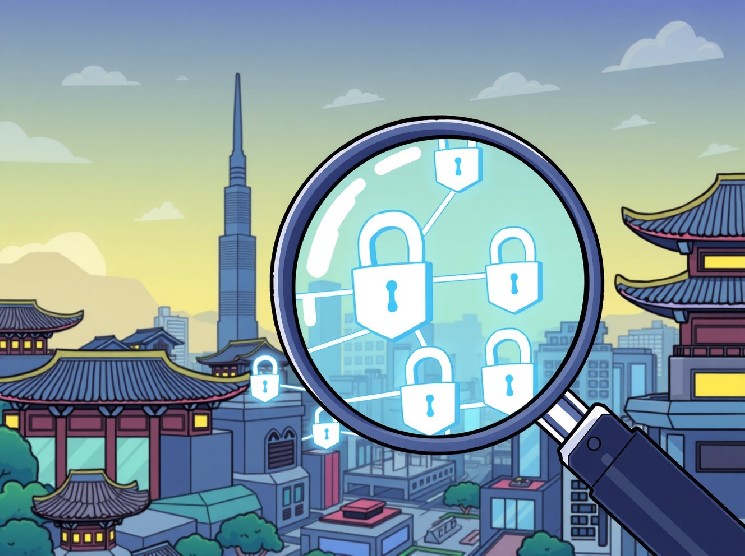South Korea has taken a decisive step in cryptocurrency regulation as authorities begin comprehensive blockchain service inspections. This significant move signals increased scrutiny of digital asset platforms and could reshape Asia’s cryptocurrency landscape. The inspection of blockchain services focuses on multiple sectors within the digital economy, reflecting growing concerns about user protection and market stability.
What is the scope of this blockchain service inspection?
The Personal Information Protection Commission (PIPC) launched this blockchain service inspection after a plenary session on November 20th. This inspection covers several key areas of the blockchain ecosystem. The inspection will assess virtual asset issuance platforms and remittance services. This also includes virtual asset exchanges that handle cryptocurrency-to-fiat conversions and stablecoin transactions. Additionally, decentralized identity (DID) services and public blockchain infrastructure will also be subject to scrutiny.
This blockchain services inspection represents South Korea’s proactive approach to regulating emerging technologies. The country aims to balance innovation and consumer protection. The timing coincides with global regulatory developments in the crypto space. South Korean authorities want to ensure the safety and compliance of the blockchain ecosystem.
Why is this blockchain service inspection taking place now?
The decision follows a preliminary suitability review that approved the new blockchain-based service. This blockchain service inspection serves multiple purposes:
- Ensuring compliance with data protection regulations
- Verify security measures across blockchain platforms
- Evaluation of risk management in cryptocurrency trading
- Assessing the trustworthiness of decentralized identity systems
- Monitor the stability of public blockchain infrastructure
This blockchain service inspection demonstrates South Korea’s commitment to building a secure digital asset environment. The country has been gradually tightening cryptocurrency regulations since 2017. This latest move is in line with the global trend towards comprehensive monitoring of digital assets.
What is the impact of this blockchain service inspection?
Inspection of blockchain services could lead to major changes in the way platforms operate. Businesses may need to strengthen their security protocols and compliance measures. This study could also influence how other countries approach blockchain regulation. The findings could set a precedent for international standards in cryptocurrency monitoring.
Market participants should prepare for potential regulatory adjustments following this blockchain services inspection. The consequences may affect trading volumes and access to the platform. However, properly enforced regulations usually benefit legitimate businesses and protect consumers.
Key points from the Korean blockchain initiative
This blockchain services inspection revealed several important developments.
- South Korea continues to take the lead in virtual currency regulation
- User protection remains a top priority for authorities
- Inspection covers both centralized and decentralized services
- Results could impact global regulatory approaches
- Blockchain innovation must meet compliance requirements
The blockchain services inspection marks a milestone in South Korea’s digital asset efforts. This shows the maturity of the country’s approach to balancing technological advances with necessary oversight. This careful research could help increase confidence in blockchain technology among mainstream users and institutional investors.
FAQ
What was the trigger for South Korea’s blockchain service inspection?
This inspection follows a prior suitability review that approved new blockchain-based services and prompts authorities to ensure proper implementation and compliance.
What services are included in the inspection?
The exam covers virtual asset issuance, money transfer services, crypto-to-fiat exchange, stablecoin platforms, DID services, and public blockchain infrastructure.
How long does it take to inspect a blockchain service?
Although no specific timeline has been announced, similar regulatory tests typically take several weeks to complete and results are released in stages.
Will this affect crypto trading in South Korea?
Although this inspection may result in temporary operational adjustments, the aim is to create a safer trading environment in the long term.
Could this test affect regulations in other countries?
Yes, South Korea often sets trends in crypto regulation, and this inspection could impact global standards.
What should blockchain service providers expect?
Providers should prepare for increased compliance requirements and possibly updated security protocols based on inspection results.
Was this analysis of Korean blockchain services inspections helpful? Please share this article with your colleagues and crypto enthusiasts on your social media channels to spread awareness about these important regulatory developments.
To learn more about the latest cryptocurrency regulatory trends, check out our article on key developments shaping blockchain compliance and institutional adoption.
Disclaimer: The information provided does not constitute trading advice. Bitcoinworld.co.in takes no responsibility for investments made based on the information provided on this page. We strongly recommend independent research and consultation with qualified professionals before making any investment decisions.


